Carnations are renowned worldwide for their beauty and popularity. Their vibrant blooms and distinctive, ruffled petals symbolize love, devotion, and fascination, making them meaningful gifts for both friends and romantic partners. This article you will understand better “carnation flower meaning”.
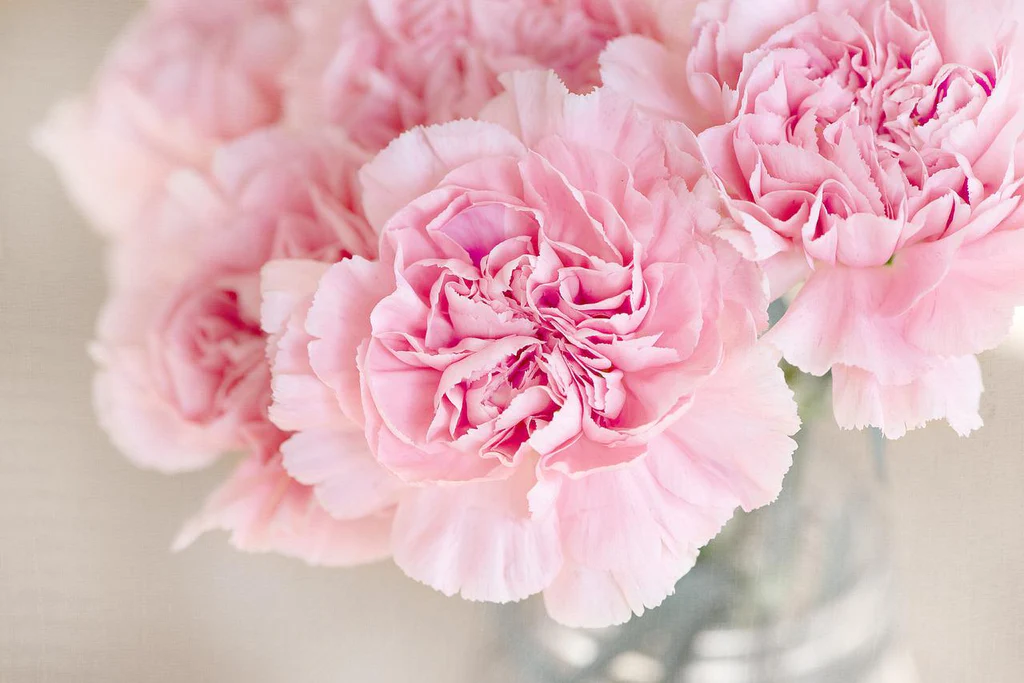
Information About Carnations
Characteristics of Carnations
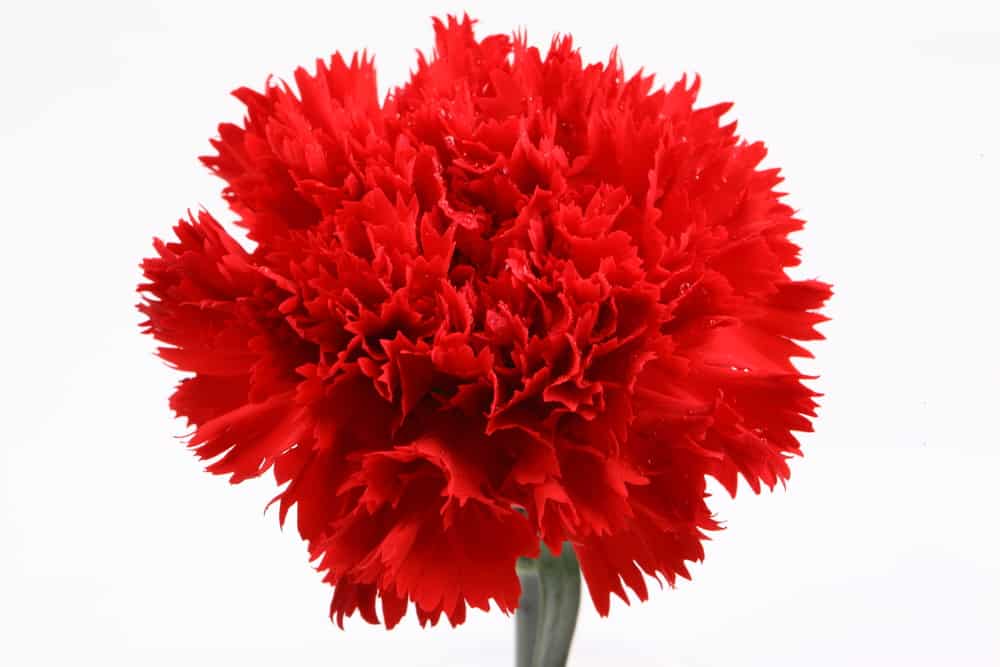
Carnations belong to the herbaceous plant group and can grow up to 80 cm in height. These plants can produce flowers either singly or in clusters of five or more. The diameter of carnation flowers typically ranges from 3 to 5 cm. The plants have slender, elongated stems characterized by distinct nodes, which is a common feature among herbaceous plants. The flowers themselves are composed of multiple layers of delicate petals that create a ruffled, full appearance.
Carnation Blooming
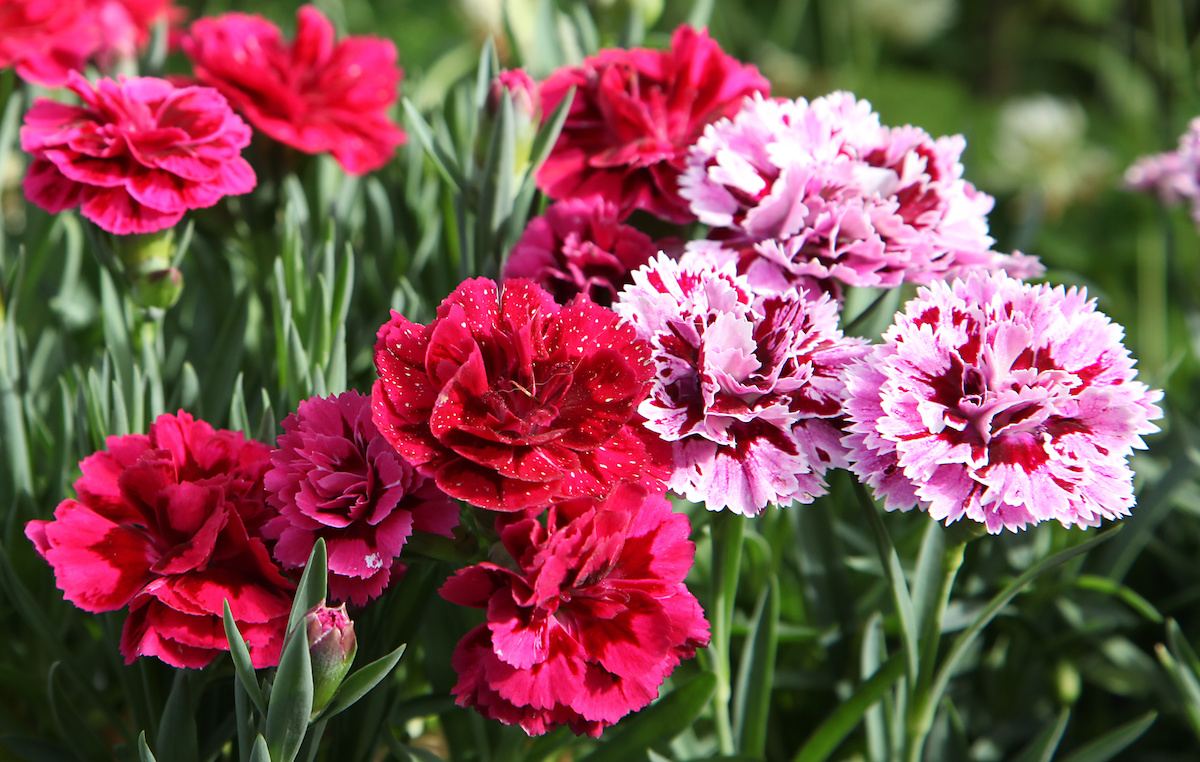
Carnations typically bloom in January, which is why they are often referred to as “The Flower of January.” They thrive and bloom most beautifully in cooler temperatures, ideally between 18-20°C. To ensure healthy growth and vibrant blooms, carnations require well-draining, nutrient-rich soil that is light and airy. These soil conditions allow the roots to establish well and prevent waterlogging, which could otherwise harm the plant.
General Symbolism of Carnations
Carnations exude a delicate and gentle charm, making them a popular choice in floral arrangements. Each color of carnation carries its own unique symbolism. While the specific meanings can vary across different cultures and countries, carnations are universally recognized as symbols of love, respect, and admiration. Their enduring beauty and symbolic richness make them a meaningful gift for various occasions.
Carnation flower meaning by color
Carnations are rich in symbolism, with each color carrying its own unique meaning. Here’s a detailed look at what each color represents:
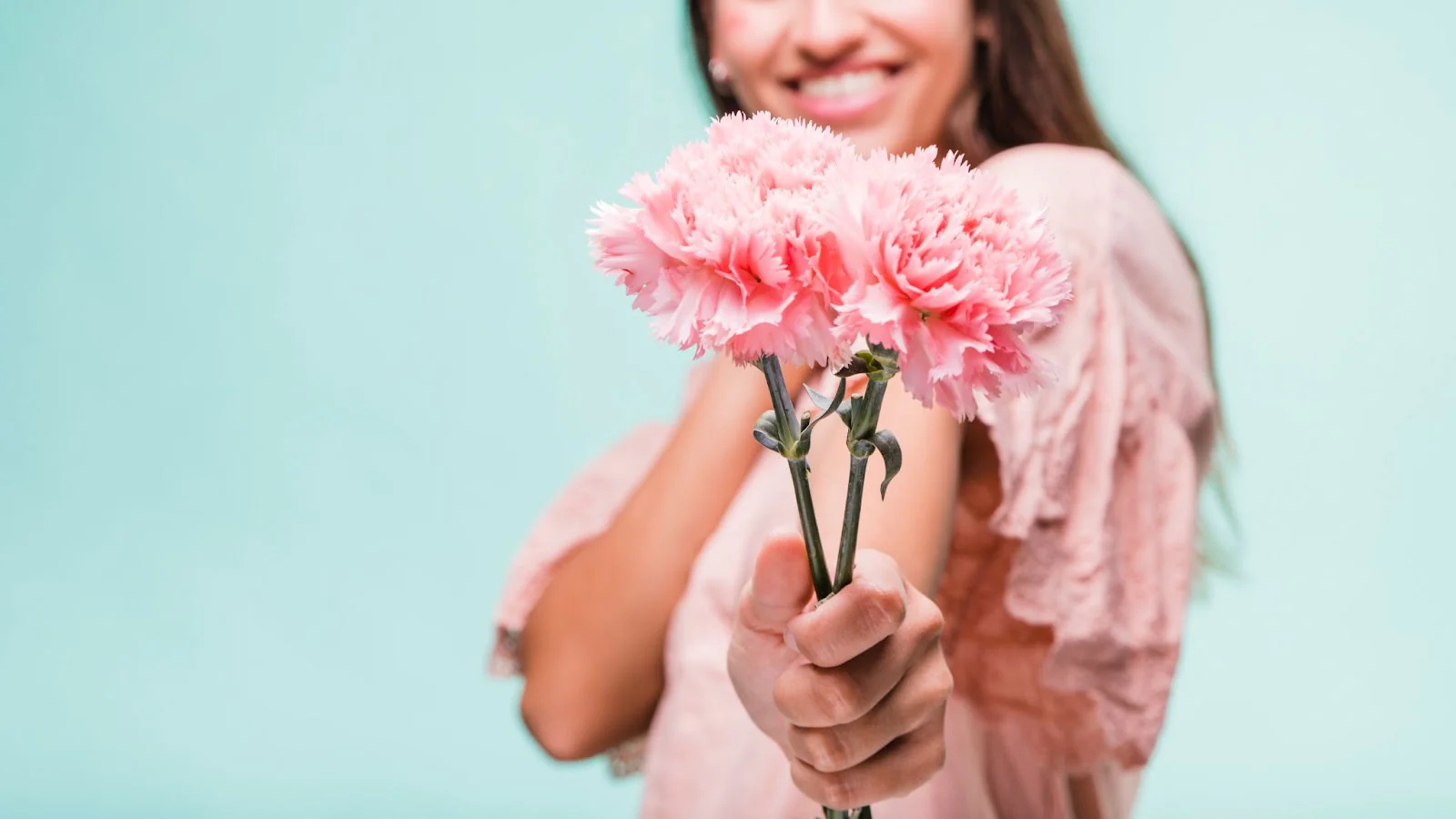
Pink Carnations
Symbol of Mother’s Love: Pink carnations are often associated with Mother’s Day and are traditionally given to mothers. They symbolize a mother’s unwavering and sacred love for her children. The soft pink hue reflects gentleness, care, and deep affection.
Gratitude: Beyond maternal love, pink carnations also convey gratitude. When given by children to their mother, they express appreciation and thanks for all that she has done. In the context of romantic relationships, pink carnations symbolize enduring love and the desire to be together for a lifetime, making them a meaningful choice for expressing long-term commitment.
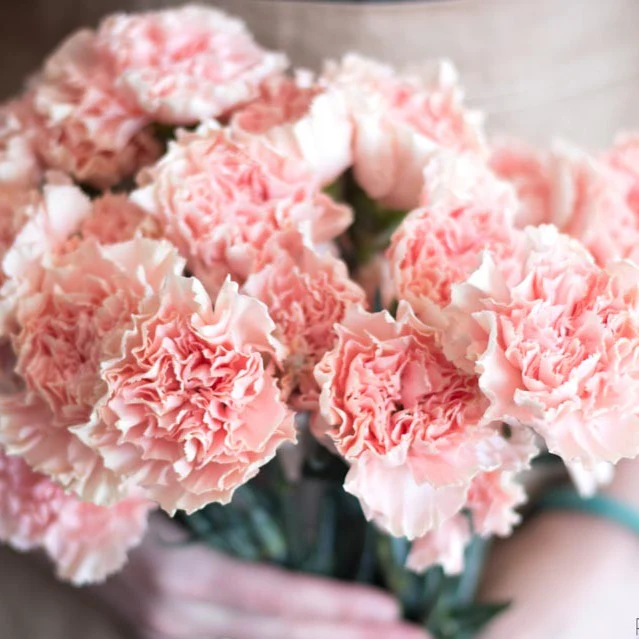
Red Carnations
Admiration and Respect: Red carnations are a popular choice for honoring mothers, symbolizing admiration and deep respect. They are a powerful expression of a child’s reverence for their mother.
Passion and Heartache: While generally representing love and affection, deep red carnations also carry a more intense meaning. They can symbolize deep emotional pain or heartache, as if one’s heart has been broken. This dual symbolism makes red carnations versatile in expressing both love and sorrow.
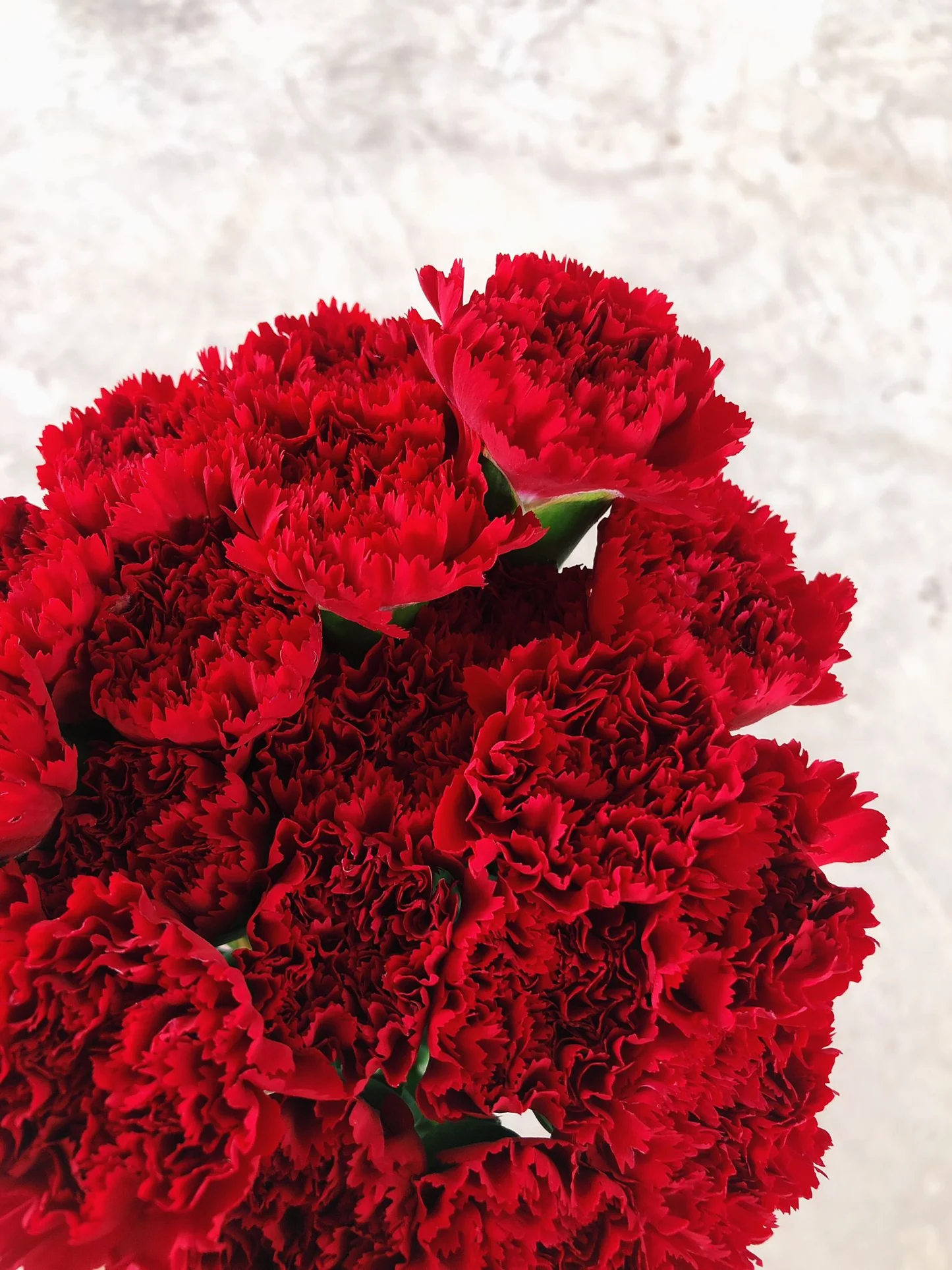
White Carnations
Purity and Sweet Love: White carnations are emblematic of pure, innocent, and sweet love. When given by a lover, they signify sincere love and genuine affection. Additionally, white carnations are often associated with good luck and best wishes, making them a popular choice for a variety of occasions.
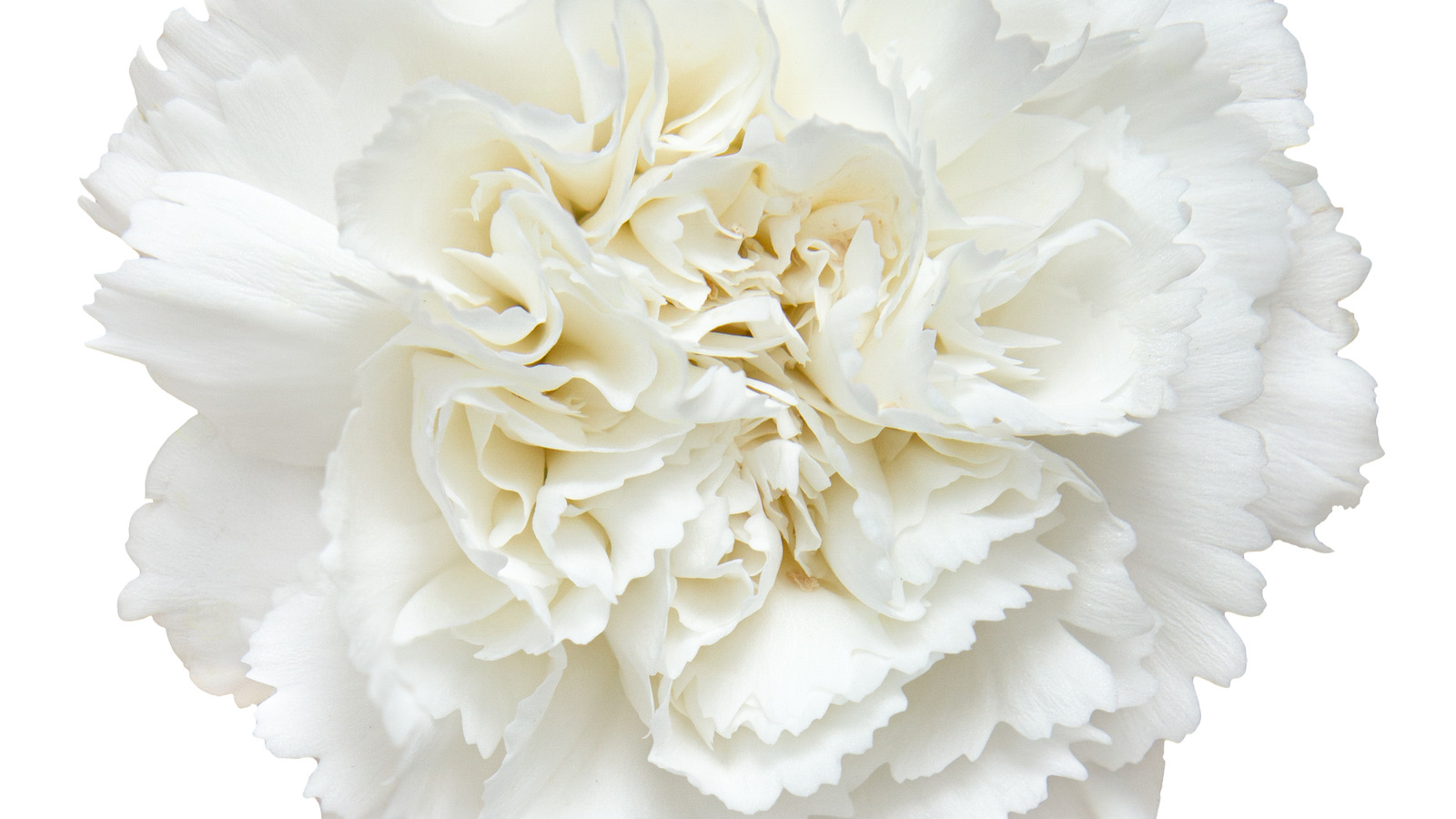
Purple Carnations
Capriciousness: Purple carnations symbolize capriciousness, changeability, and an unpredictable temperament. This symbolism is akin to the phrase “bright morning and rainy afternoon,” reflecting the volatile nature of emotions or situations. Due to this meaning, purple carnations are rarely chosen as gifts.
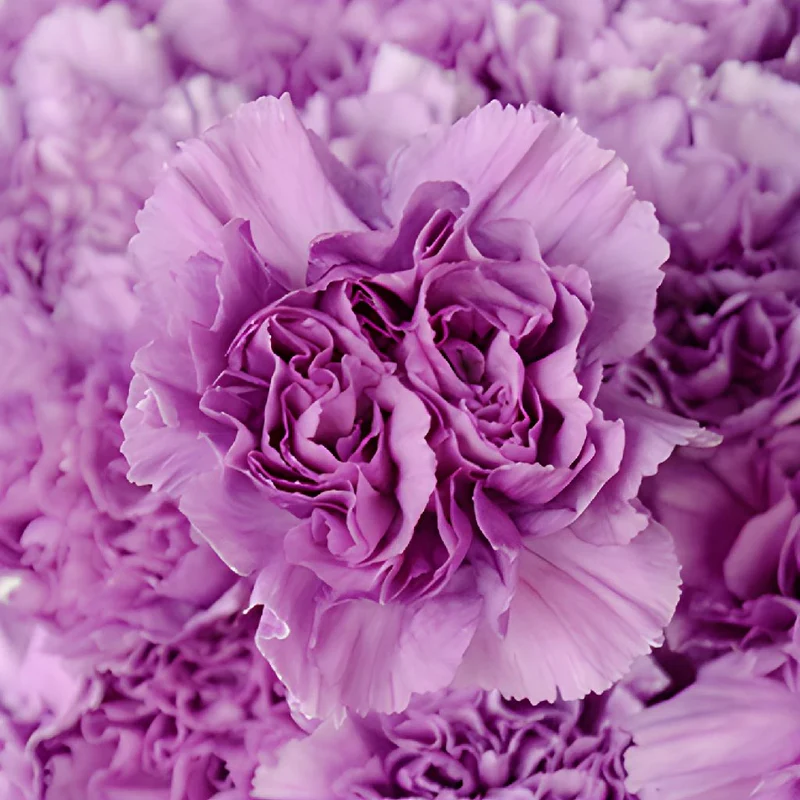
Green Carnations
Harmony and Peace: Green carnations represent harmony and a desire for a peaceful, balanced life with one’s beloved. They are often chosen to symbolize tranquility, stability, and a deep sense of calm within a relationship.
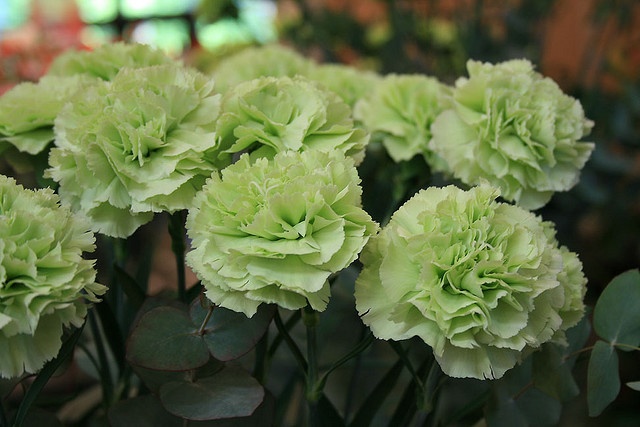
Striped Carnations
Rejection: Unlike the positive connotations of other colors, striped carnations symbolize rejection. They convey messages of refusal, whether it’s rejecting emotions, actions, or thoughts. The striking appearance of striped carnations serves as a reminder of the boundaries one may set in relationships.
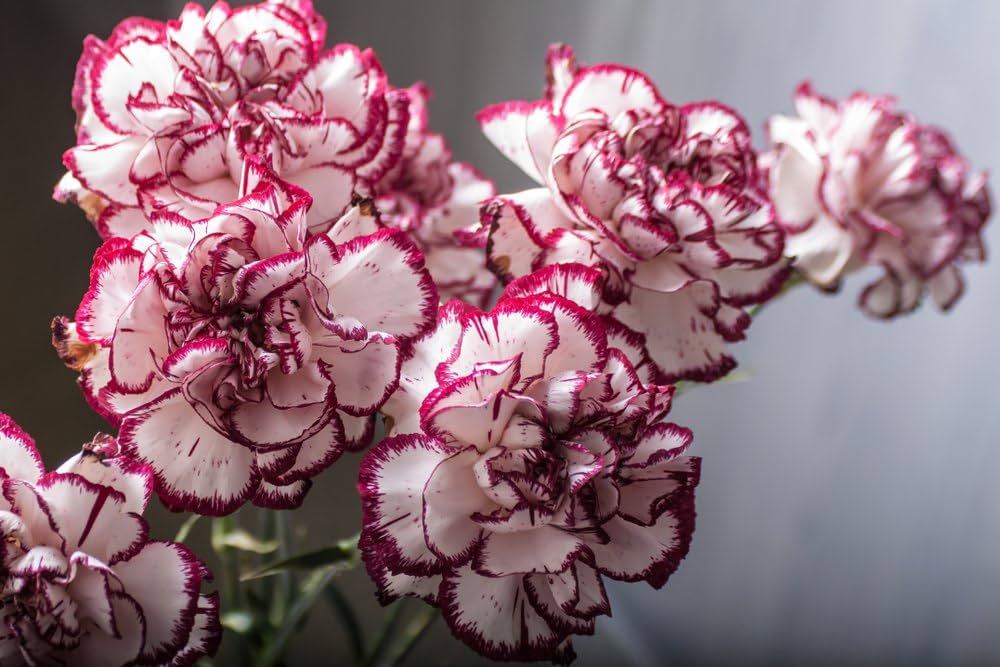
Yellow Carnations
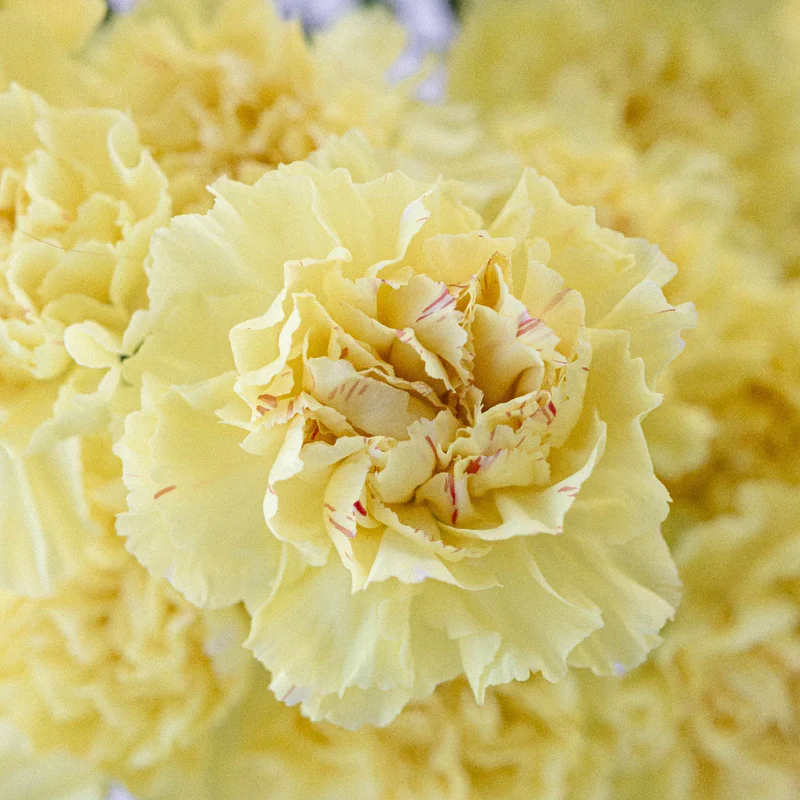
Disappointment and Disdain: Yellow carnations are associated with feelings of disappointment or dissatisfaction. They can also symbolize disdain, making them a less favorable choice for positive occasions. The bright yellow color contrasts with the negative emotions they represent, adding to their symbolic complexity.
Carnations in Weddings
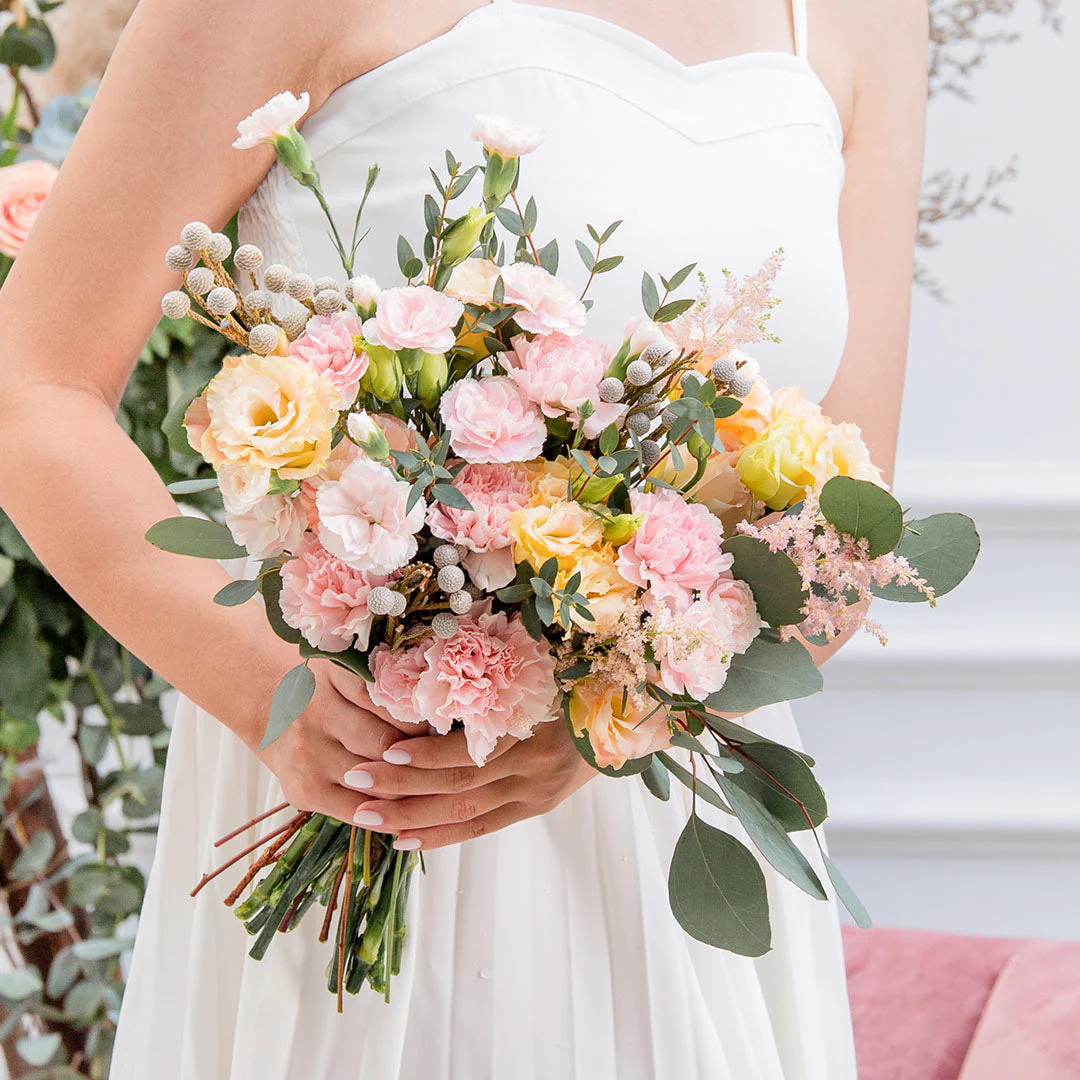
Symbol of Eternal Love: Carnations hold special significance in weddings, symbolizing eternal love and the desire for a lifetime of togetherness. They represent the joy and fulfillment of true love, making them a popular choice for wedding decorations and bridal bouquets. Pink and red carnations are particularly favored for their association with love and commitment.
The meaning of carnations in different countries
In British culture, giving carnations is seen as a gesture of expressing hidden affection towards a woman, hoping for her reciprocation. If accepted, the woman might give back a pink or red carnation, while a rejection might result in a striped carnation. Women also use carnations to express their feelings to their loved ones, similar to men.
In Chinese culture, carnations are often used as decorations in weddings and as bridal bouquets. They symbolize a harmonious and happy marital life after the wedding day.
In Japanese culture, carnations are not only symbols of love used during Valentine’s Day and anniversaries but are also commonly chosen as gifts for mothers on Mother’s Day or on March 8th.
In American culture, carnations are not just gifts for Mother’s Day but are officially recognized and widely used for honoring mothers. They are also popular as wedding flowers for bridal bouquets.
Understanding the carnation flower meaning enriches our appreciation of this timeless bloom. With its diverse colors and rich symbolism, the carnation carries messages of love, admiration, and respect. Whether used in bouquets, arrangements, or personal gifts, carnations offer a meaningful way to convey sentiments and celebrate special occasions. By delving into the significance of carnations, you can better honor their beauty and the messages they represent in your floral expressions.

Related articles
Top 5 Spring Tree Pests: Identifying and Managing Common Threats
How to Grow Virginia Creeper: A Complete Guide
How to care for cyclamen from the expert
Detailed instructions: How to care for propagated plants
Understanding tree diseases: Identification, prevention, and treatment
Detailed instructions: How to care for fruit trees
Detailed instructions how to grow winter vegetables
How to propagate an aloe plant: a detailed guide to the methods